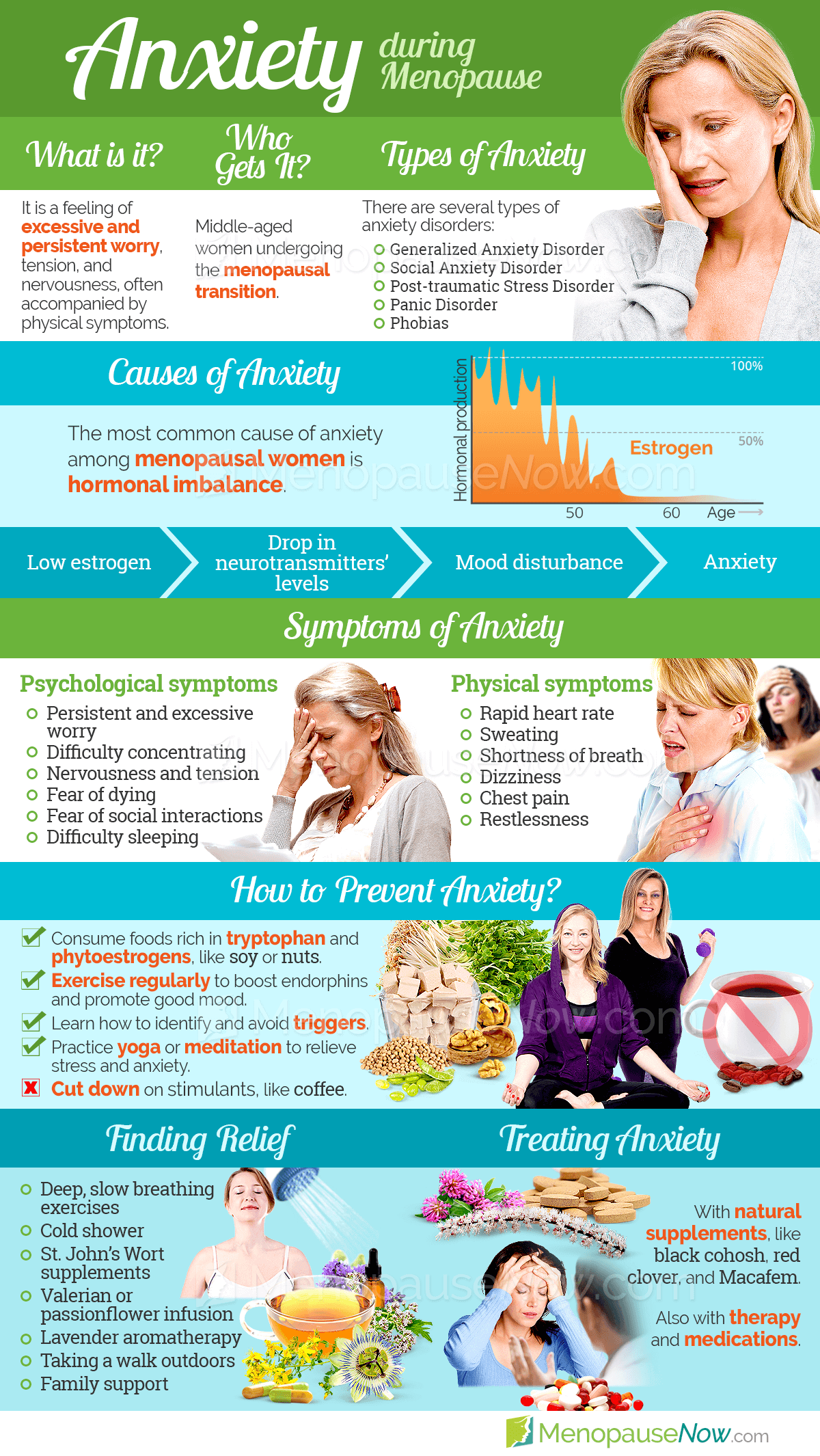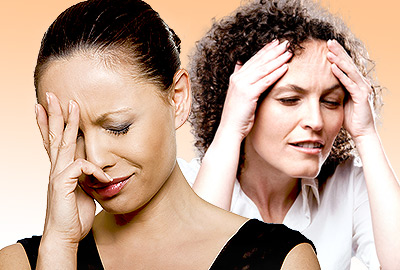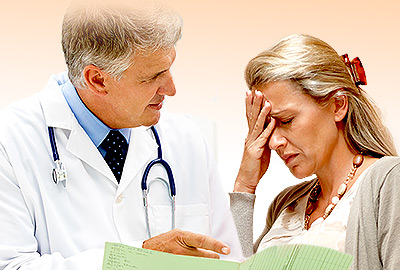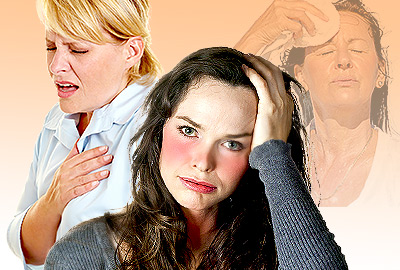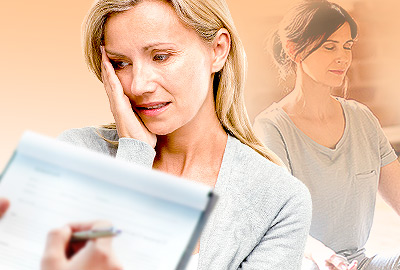While anxiety can affect anyone, this psychological symptom is twice as common in women as it is in men. Though this condition can strike at any time during a woman's life, stages of hormonal fluctuations, such as menopause, can trigger anxiety episodes. While most menopausal women do not necessarily develop a serious clinical anxiety disorder, these conditions are not uncommon. In fact, anxiety disorders affect more than 40 million Americans.
For women who are concerned about anxiety during menopause, it is extremely valuable to gain insight into anxiety, its various manifestations, its symptoms, and its causes. Understanding these aspects of anxiety can help women determine the best way to manage anxiety during menopause. Continue reading to learn more about anxiety.
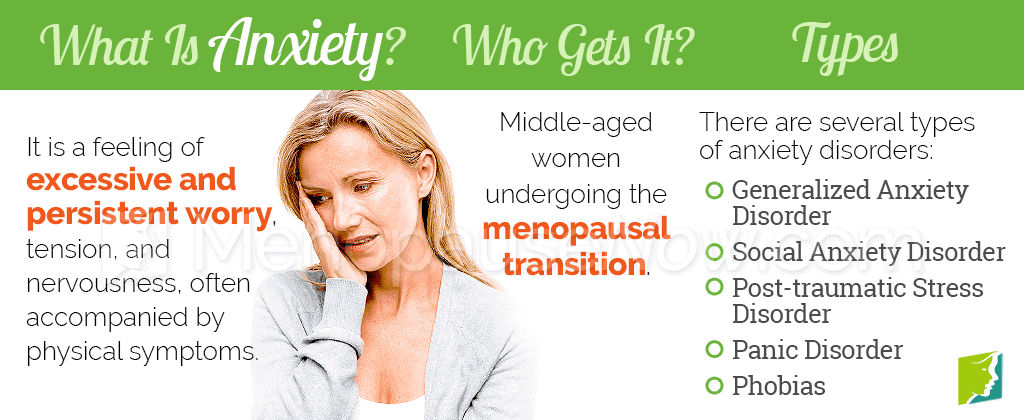
About Anxiety
Anxiety is a psychological state characterized by excessive and persistent worry, tension, and nervousness. There are several types of anxiety disorders, classified on the basis of symptoms, causes, and other features.
Generalized anxiety disorder (GAD). This most common type of anxiety is characterized by a persistent state of exaggerated worry and fear (at least six months), often when there is little or nothing to provoke it.
Panic disorder (PD). This form is characterized by the recurrence of acute episodes of sudden terror and overwhelming dread, which produce a variety of emotional and physical symptoms.
Social phobia. This involves excessive worry and self-consciousness about everyday social situations.
Post-traumatic stress disorder. Unrelated to hormonal changes in menopause, PTSD is an anxiety disorder triggered by a traumatic life event.
Obsessive compulsive disorder. Also infrequently associated with menopause, OCD involves irrational preoccupations and rituals.
Specific phobias. These phobias, including agoraphobia, are unwarranted and extreme fears of particular stimuli.
Click on the following link to read more information about anxiety, or continue reading below to learn more about anxiety symptoms and their particular characteristics.
Symptoms of Anxiety
People who experience anxiety often cannot seem to shake their concerns and worries about everyday events, even though they may know that their anxiety is out of proportion to the triggering situation. Psychological symptoms of anxiety can also include nervousness, difficulty concentrating, trouble relaxing, tenseness, hypervigilance, restlessness, and irritability.
Anxiety can put someone on edge, making it feel as if disaster is always looming. Just getting through the day can feel overwhelming and even unbearable. At night, it can wake the sufferer from sleep or make falling asleep extremely difficult. Moderate to severe levels of anxiety can put a significant strain on personal and professional relationships, as well as harm a woman's self-esteem.
Anxiety produces more than just psychological symptoms. People who suffer from anxiety typically experience a host of physical symptoms, including heart palpitations, fatigue, muscle aches, digestive problems, excessive sweating, frequent urination, shortness of breath, and more. These symptoms may be especially intense for people who experience panic attacks, or sudden and acute episodes of overwhelming fear and panic.
Click on the following link for more information about the symptoms of anxiety, or continue reading to learn more about specific causes for anxiety during menopause.
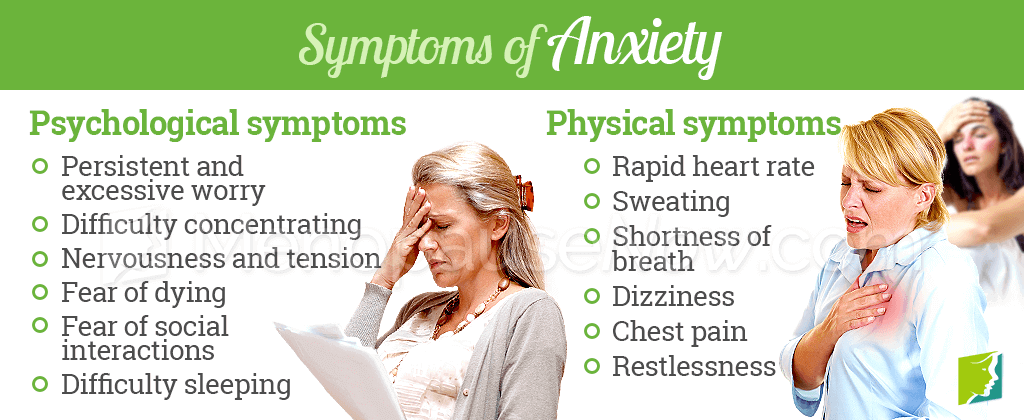
Causes of Anxiety
Hormonal Causes
For women in their 40s and 50s who are going through menopause, one of the most common causes of anxiety is decreased estrogen levels. Estrogen declines during perimenopause - or the time before menopause - as the body prepares to cease egg development and menstruation. Scientists have discovered that estrogen has a significant effect on the brain's regulation of moods and emotion.
While this relationship appears complex, experts do know that changes in estrogen levels have a direct effect on the neurochemicals serotonin, norepinephrine, dopamine, and melatonin. Since all of these neurotransmitters play an integral role in emotion and mood regulation, disruptions caused by estrogen fluctuations can lead to anxiety during menopause.
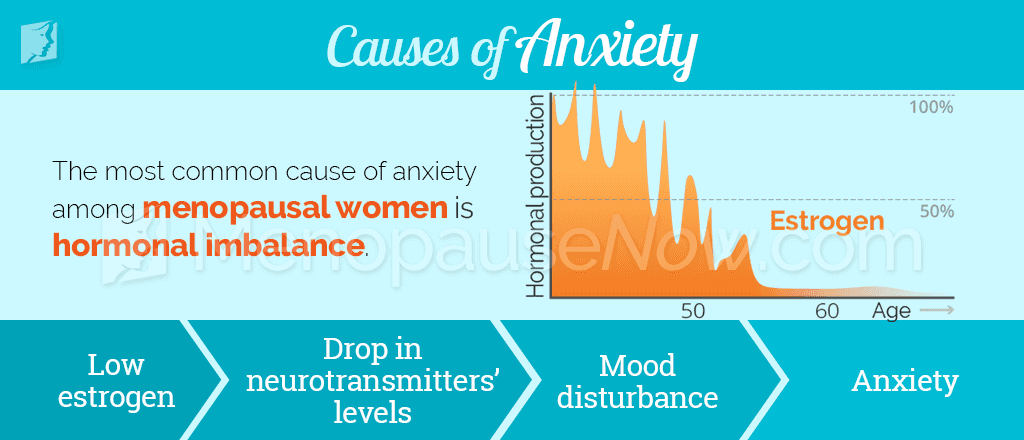
Other Causes
While the primary cause of anxiety in menopause is hormonal, other medical and psychological conditions can cause anxiety. Women who are concerned about extreme or persistent anxiety should not hesitate to make an appointment with a qualified medical professional.
Click on the following link to find more information about the causes of anxiety, or read on to learn more about ways to overcome anxiety and get life running smoothly again.
Anxiety Treatments
Generally speaking, there are three different ways to approach anxiety treatment: self-care and lifestyle changes, natural therapies, and prescription medications. It is generally recommended that women begin with the least aggressive and risky of these three approaches: lifestyle changes and self-care, which can include increased physical activity, dietary changes, relaxation techniques, and more.
Because these methods can be difficult to implement into a busy woman's schedule and because these measures do not address the root problem of hormone imbalance, many combine lifestyle changes with natural remedies.
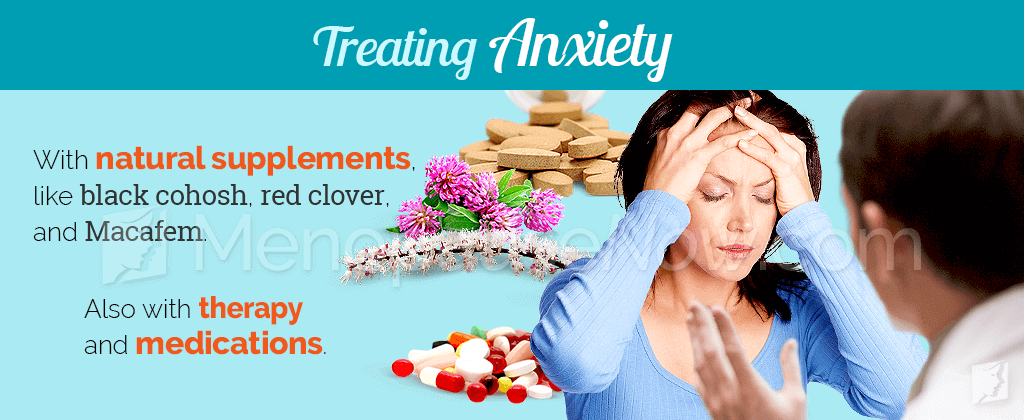
If this combination is not effective, prescription medications should be considered. It is also a good idea to talk to a counselor or a trained psychiatry professional who can offer anything from an open ear to effective psychotherapy for anxiety management.
Click on the following link to learn specific treatments for anxiety, which begin with lifestyle changes, move onto alternative medicines, and finally, if those options don't seem to help, medications. The most effective treatments for anxiety typically combine lifestyle changes and alternative medicines.
Sources
- Amin, Z. , Canli, T. & Epperson, C.N. (2005). Effects of Estrogen-Serotonin Interactions on Mood and Cognition. Behavorial and Cognitive Neuroscience Reviews, 4(1), 43-58. Retrieved from http://www.ncbi.nlm.nih.gov/pubmed/15886402
- Bromberger, J.T. et al. (2013). Does Risk for Anxiety Increase During the Menopausal Transition? Study of Women's Health Across the Nation (SWAN). Menopause, 20(5), 488-495. doi: 10.1097/GME.0b013e3182730599
- National Institute of Mental Health. (2016). Anxiety disorders. Retrieved May 4, 2016, from http://www.nimh.nih.gov/health/topics/anxiety-disorders/index.shtml
- Office on Women's Health. (2010). Menopause and mental health. Retrieved May 4, 2016, from http://womenshealth.gov/menopause/menopause-mental-health/

